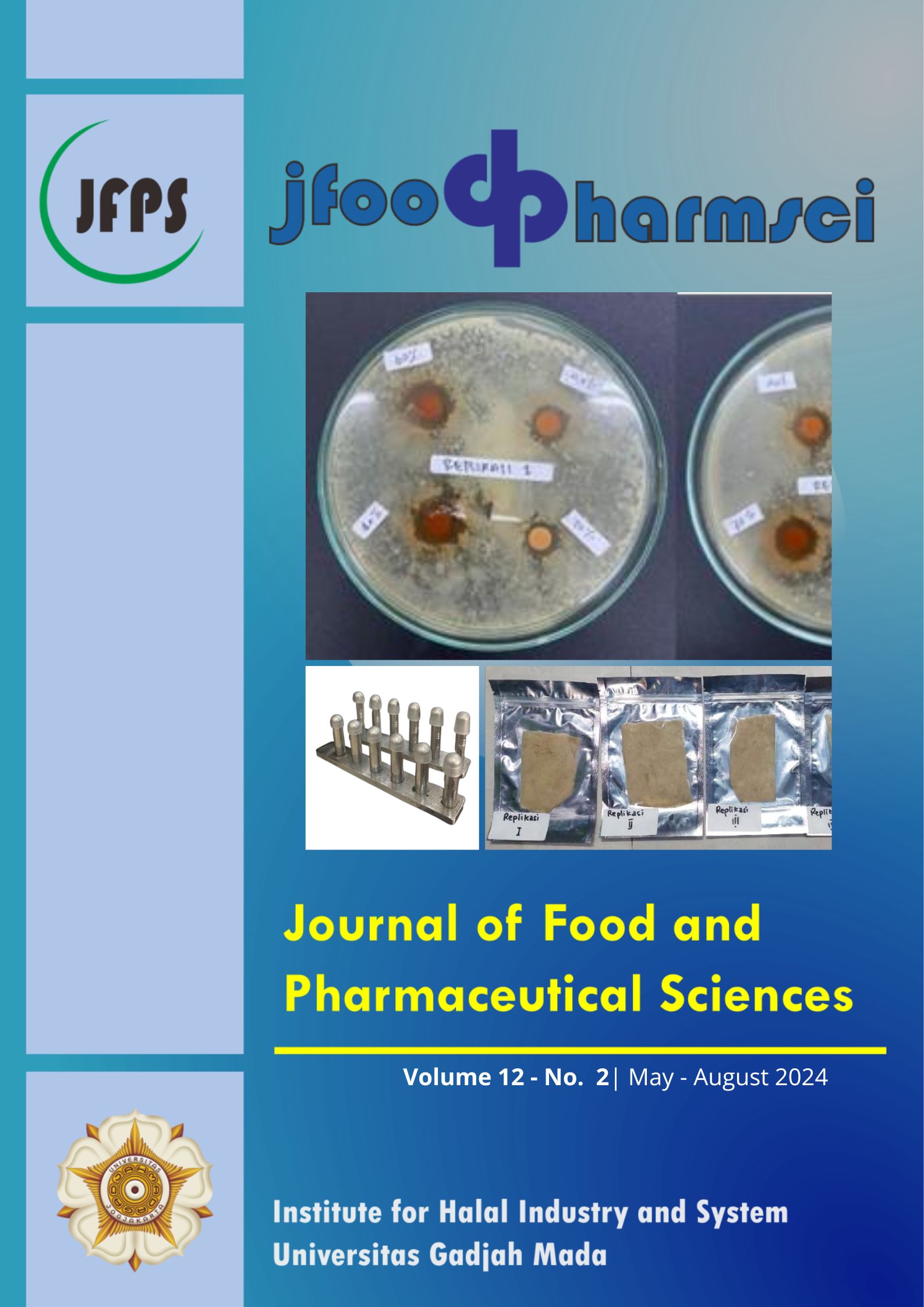The Effect of Temperature on Physicochemical Properties of Moringa Leaf Ethanolic Extract (Moringa oleifera L.) Patch and Anti-Inflamatory Test
Abstract
Moringa leaf extract contains flavonoids confirmed as anti-inflammatory at 200 mg/Kg b.w. The patch was chosen for topical anti-inflammatory preparation because it is continuous for an extended treatment period. Previous research has developed a patch formula using a polymer combination of polyvinyl alcohol (PVA) and alpha-cellulose (1: 2) that meets the requirements for good patch preparation. However, the effect of temperature resistance on physicochemical properties and anti-inflammatory activity needs to be confirmed. Moringa leaves were macerated in 96% ethanol and dispersed into a patch matrix of PVA and alpha-cellulose. Patches were treated at various storage temperatures, namely 4°C, 25°C, and 40°C each for 8 hours for six cycles. Mice were divided into three groups: blank patch, brand patch product, and moringa leaf patch. Mice were given 0.05 mL of carrageenan suspension intraplanar on the sole of the left foot, and the edema volume was measured using a plethysmometer. Statistical analysis uses One-Way ANOVA and T-test. The results showed that temperature affected the pH, thickness, and weight properties but did not affect the moisture, folding endurance, and organoleptic properties. The average edema volume of mice in the brand product group was not significantly different from the moringa leaf patch group, with a significance value of 0.066 (p > 0.05). The Moringa leaf ethanolic extract patch confirmed it can reduce the volume of mouse foot edema by 5 hours.
































